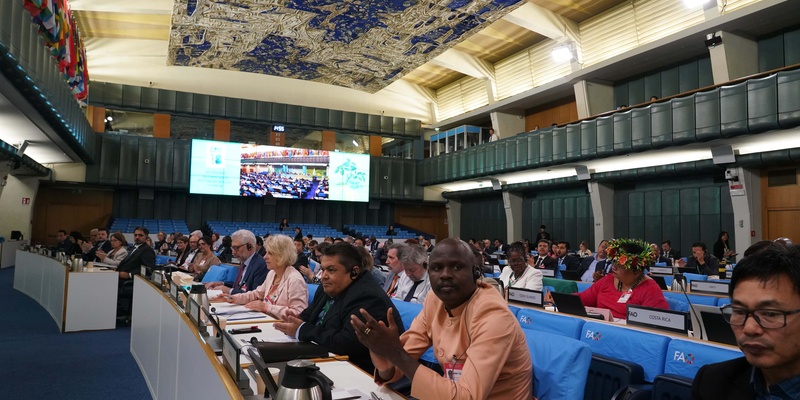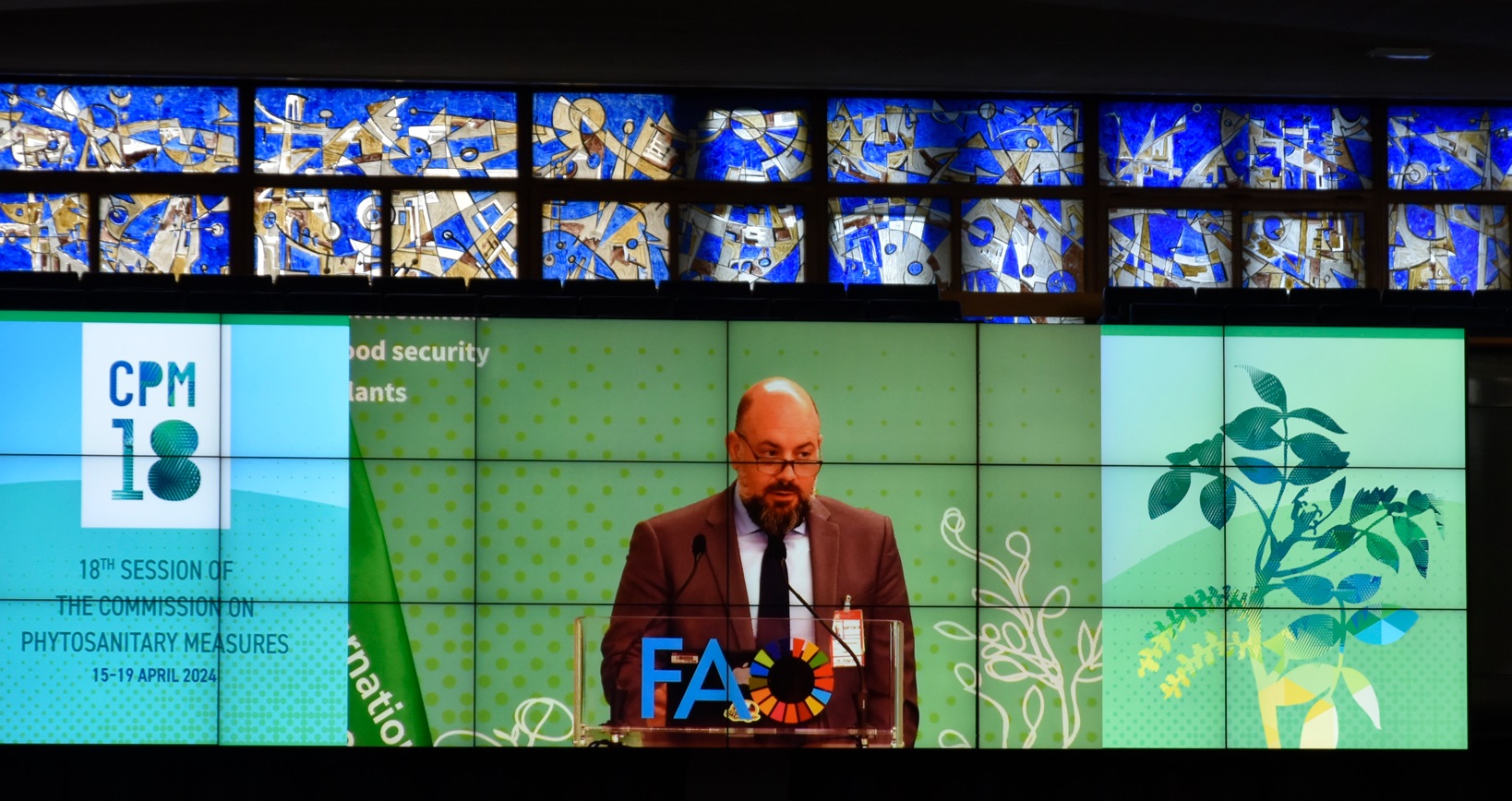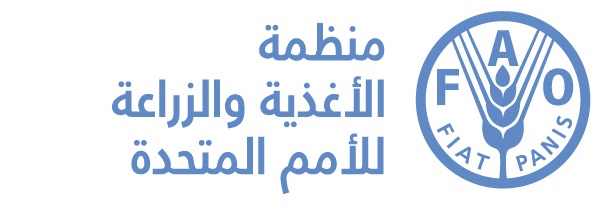CPM-18 delegates underscore vital role of implementation and capacity development for phytosanitary excellence
Posted on أربعاء, 24 إبريل 2024, 11:04

©FAO/ Thomas Toti
Rome, 19 April 2024. Delegates from contracting parties of the International Plant Protection Convention (IPPC), convening at the eighteenth Session of the Commission on Phytosanitary Measures (CPM-18), have emphasized the value of IPPC implementation and capacity development activities in supporting countries to comply with international plant health standards. Delegates who took the floor commended the IPPC Secretariat and the Implementation and Capacity Development Committee (IC) for the number and quality of activities carried out in 2023 to empower countries to strengthen their national phytosanitary capacity, enhance their understanding of the International Standards for Phytosanitary Measures (ISPMs) and contribute to discussions to improve plant health globally.
CPM is the IPPC’s main governing body and held its annual meeting from 15-19 April 2024 in Rome, Italy.
The IC is a subsidiary body of the CPM which develops, monitors and oversees an integrated programme to support the implementation of the IPPC and ISPMs, and to strengthen the phytosanitary capacity of contracting parties.
IC Chair’s report
Delegates welcomed the report of the Chair of the Implementation and Capacity Development Committee, Dominique Pelletier, who highlighted the accomplishments of the last year. Pelletier noted that the IC, which is concluding its seventh year as a committee, welcomed new members in May and a new Vice Chair- Thorwald Geuze, from the Kingdom of the Netherlands, in May 2023. The IC is currently overseeing the implementation of three of the IPPC's eight Development Agenda Items (DAIs), namely: management of the e-commerce and postal and courier pathways; developing guidance on the use of third-party entities and Strengthening pest outbreak alert and response systems. These DAIs, in addition to that on harmonization of electronic data exchange, which is under the oversight of the ePhyto Steering Group, are managed by the Implementation and Facilitation Unit of the IPPC Secretariat. The DAIs underpin the IPPC Strategic Framework 2020-2030.

Dominique Pelletier, the IC Chair delivers the committee’s report during CPM-18 - ©FAO/Anita Tibasaaga
The IC report provided an update on the IC teams formed in 2023, to develop guidance on the use of third-party entities, to revise the IPPC Regional Workshop guidelines, to revise the IPPC form for submission of implementation topics, and to revise the guideline for CPM preparation. The CPM noted the revised Guidelines for IPPC Regional Workshops, and noted the work done to develop a new IPPC Guide to participating in CPM, which was made available to all participants before CPM-18. The secretariat restructured one e-learning course to create two separate courses; one on Surveillance and pest status determination and another on National Reporting Obligations.
The IC also conducted multiple webinars in 2023, on: newly published IPPC guides and e-learning courses, the IPPC ePhyto Solution in African countries, IPPC Call for Topics and national and regional and global ICD projects presented at the IC Open Session on Projects.
Implementation and Capacity development updates
Delegates noted the importance of the guides and training materials developed by the IC and the Secretariat as being essential in understanding the requirements of the ISPMs and promoting compliance at national level. Among the key achievements noted by CPM-18 are recently published IPPC guides on emergency preparedness, banana fusarium TR4, regulation of wood packaging material, e-commerce and participating in CPM.
CPM commended the secretariat for translating many IPPC guides and e-learning courses into FAO official languages. The CPM thanked partner organizations and individuals who supported the translation of guides and training materials and encouraged members of the phytosanitary community to offer more support.
Delegates also commended the implementation of Phytosanitary Capacity Evaluations (PCEs), basing on successful PCEs in various countries that were able to identify gaps and weaknesses in their national phytosanitary systems, develop national phytosanitary capacity development strategies and workplans for implementing priority activities. Through the PCE, Senegal identified an implementation agency and will start the work of addressing the PCE outcomes in May 2024. In 2024, the IPPC Secretariat envisages more PCEs, finalization of the PCE desk study, and a roadmap to improve the PCE tool.
On the IPPC Observatory, CPM-18 delegates noted the upcoming IPPC third general survey and a new study on e-commerce. The IPPC Observatory is a system that monitors the implementation of the IPPC, ISPMs and CPM recommendations. Delegates welcomed the IPPC Observatory survey on antimicrobial resistance, which was requested at CPM-17 in 2023. They noted that the results on countries’ use of antibiotic and fungicide products in plant protection would enhance understanding of the nature and scope of risks associated with antimicrobial use in plant protection, especially in the context of One Health. The CPM invited the IPPC Secretariat to extend the study for another year to collect and analyze more information.
The IPPC Secretariat updated CPM-18 on the former's global coordination of topics such as Fusarium TR4. The Gruppo de America Latina (GRULAC) commended the secretariat on this role and reiterated the importance of prioritizing this topic, promoting resource mobilization and the use of new technologies.

